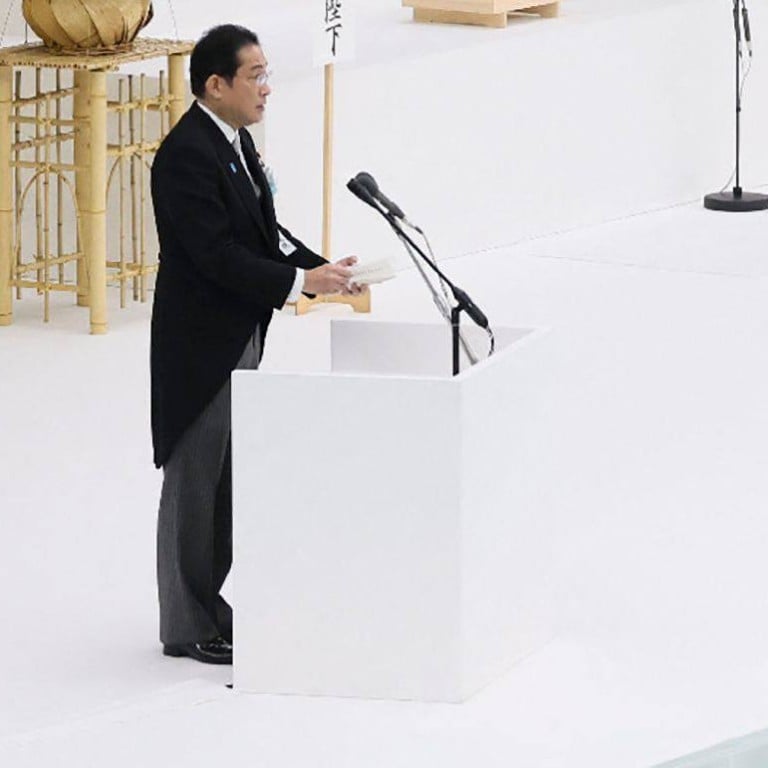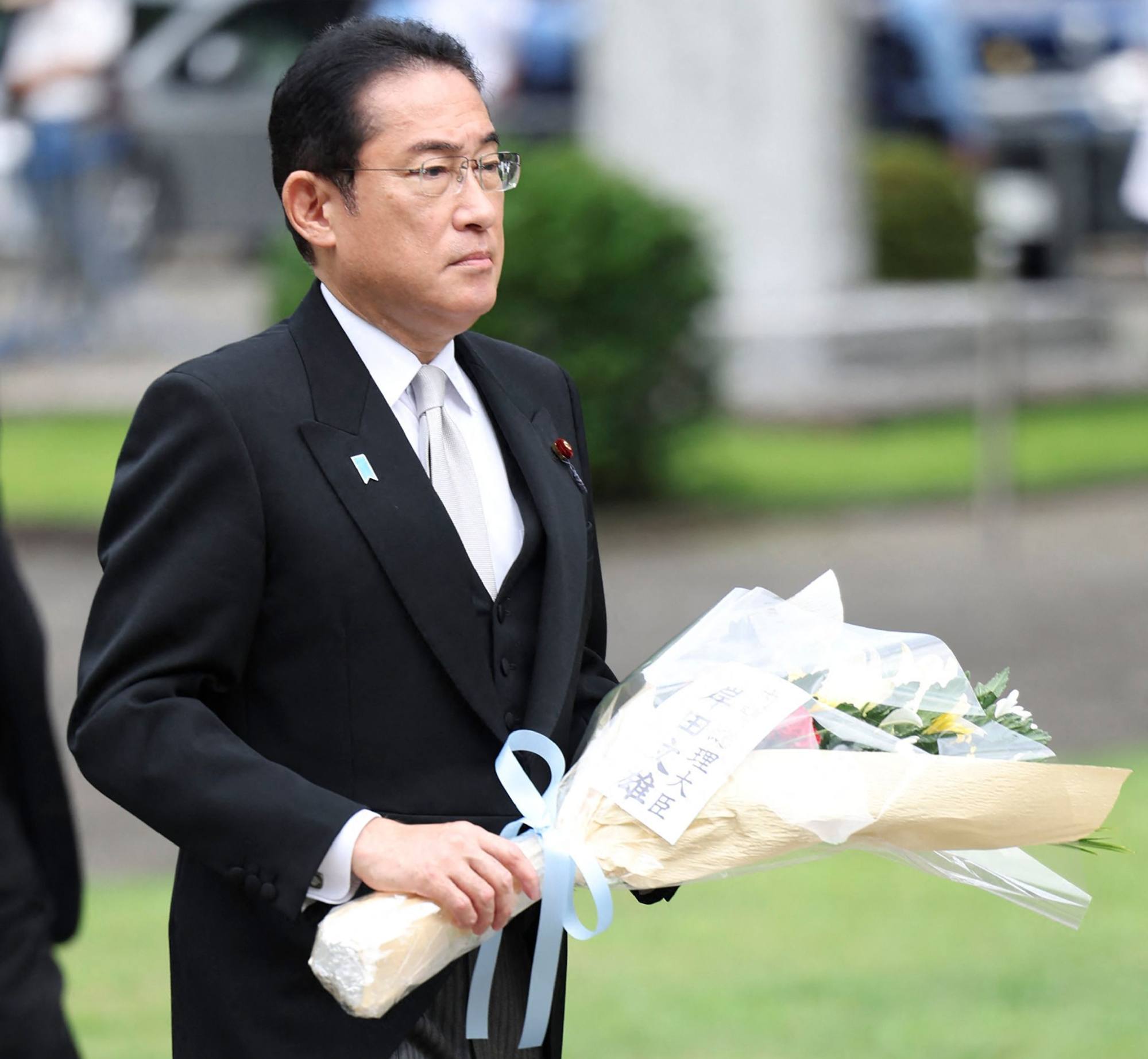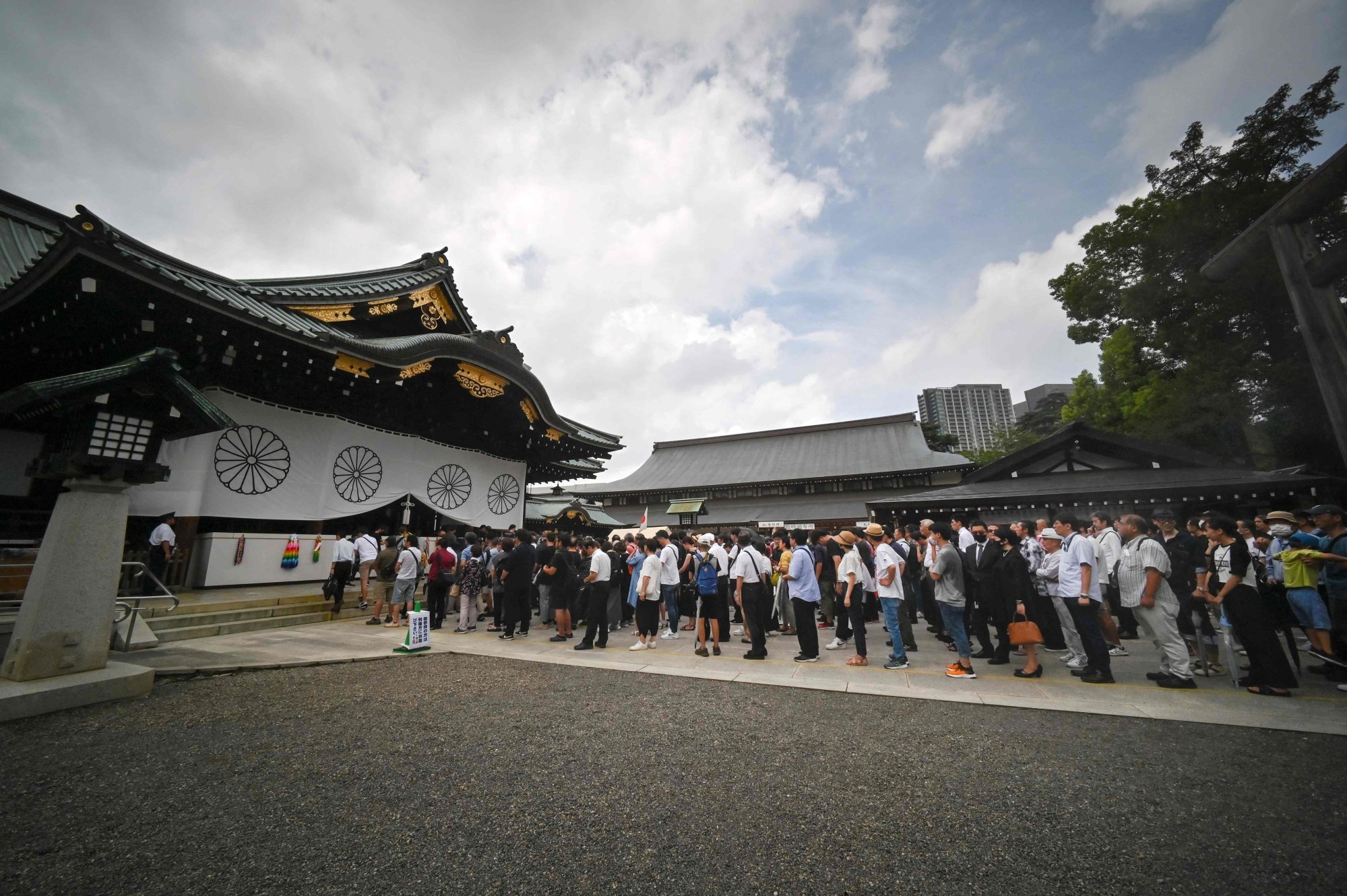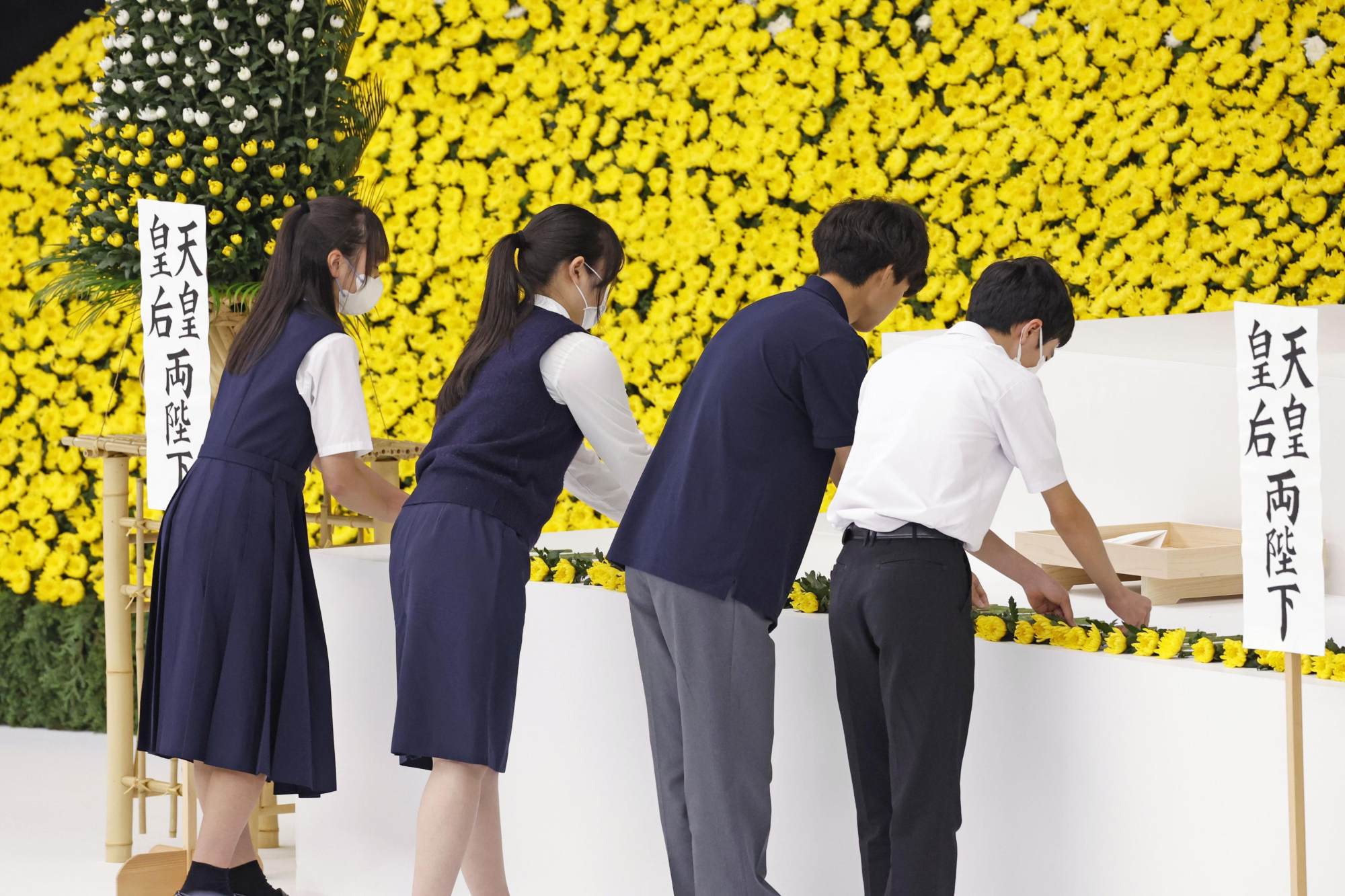
Japan marks 78th anniversary of WWII defeat as Kishida renews peace vow with no mention of wartime aggression
- PM Kishida instead stressed the destruction Japan suffered from the war and said the country would cooperate with the world in solving global issues
- The memorial events coincided with a new survey which showed nearly half of all students said they had never talked about the war with family members or friends
Kishida, who heads a more liberal faction of the ruling Liberal Democratic Party, sent a masakaki offering to the shrine and spoke at a ceremony at the nearby Budokan Hall to mourn the 2.3 million military personnel who died during the Pacific War, and an estimated 800,000 civilians who were also killed.
Japan would “stick to our resolve to never repeat the tragedy of the war”, Kishida said at a solemn ceremony in a speech that was almost identical to what he read last year.

Kishida instead stressed the destruction that Japan suffered from the war, including the US atomic bombings of Hiroshima and Nagasaki, fire bombings across Japan and the bloody ground battle on Okinawa, and the suffering of Japanese people. He said Japan would stick to its postwar peace pledge and would continue to cooperate with the world in solving global issues.
Japan’s emperor also addressed the event, with visitors to the shrine and at the Budokan observing a minute of silence at midday.

Visitors thronged the shrine grounds despite the threat of bad weather caused by Typhoon Lan. Among the uniformed veterans – whose numbers dwindle every year – were families of the war dead and members of nationalist groups.
“I did not expect Kishida to come, simply because he does not like to be faced with criticism from the media or countries like China and South Korea,” he said.
Equally, conservatives would like to see the emperor able to attend the remembrance ceremonies for the war dead at Yasukuni, Moteki said, but he admitted that was impossible until a prime minister had displayed sufficient fortitude against the inevitable domestic and foreign criticism to appear in person.
China on Tuesday said it made “stern” representations to Japan over Kishida’s ritual offering to Yasukuni, while South Korea’s foreign ministry urged Japan to “squarely face history and demonstrate through action their humble reflection and sincere remorse for its past history”.
The memorial events at Yasukuni and other venues across Japan coincide with the release of a survey by the Mainichi newspaper that indicates nearly half of all high school students aged between 16 and 18 have never had an opportunity to discuss the war, its causes and legacy.
Of the 2,300 students taking part in the nationwide survey, more than 49 per cent said they had never talked about the war with family members or friends.

“The education ministry does not want to teach pupils about the war, so they have very little understanding of what went on and do not know how to discuss the issues,” said Moteki, whose group has been accused of promoting historical revisionism. “It is only when students get to university that they have a chance to really learn about these things.”
A commonly expressed view was that students had only been taught about the Hiroshima and Nagasaki bombings in August 1945, and they wanted to know more about events that had preceded the attacks and finally convinced the Japanese government to capitulate to the Allies.
Critics of Japan’s approach to history education, particularly when it comes to the early decades of the last century, claim that the education ministry has consistently glossed over many of the most appalling excesses of the Imperial Japanese Army during the war, including the Nanjing Massacre, the use of wartime sex slaves, or “comfort women”, in front-line military brothels, and the widespread use of forced labourers.
Additional reporting by Associated Press, Reuters

